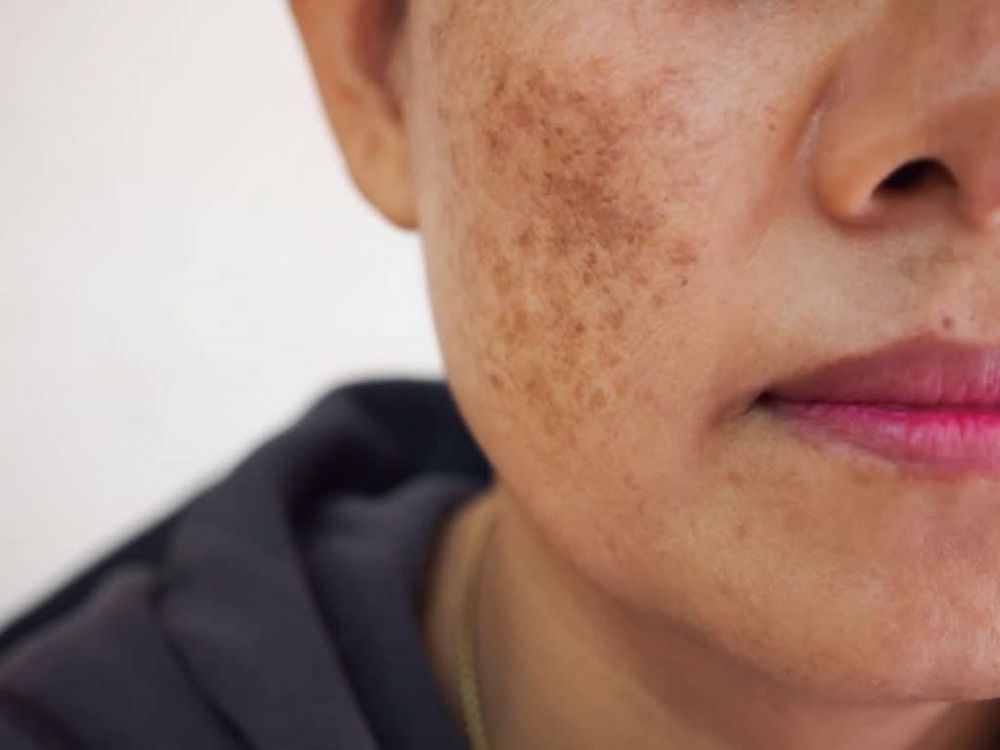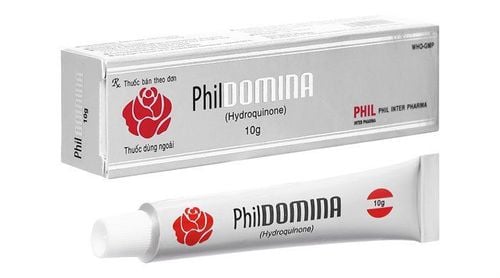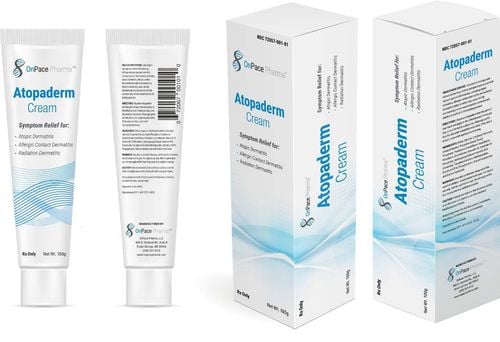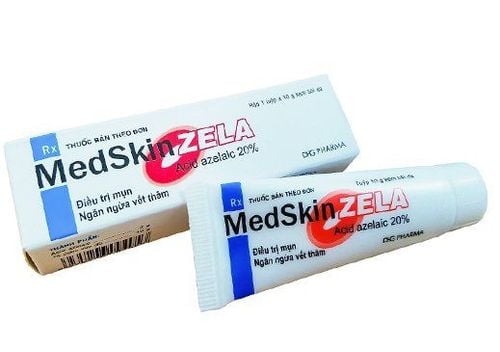This is an automatically translated article.
The article was professionally consulted with Specialist Doctor I Nguyen Thanh Van - Doctor of Internal Medicine - Dermatology - Department of Medical Examination & Internal Medicine - Vinmec Phu Quoc International General Hospital.Hyperpigmentation is a condition in which dark brown spots or patches appear on the skin of the face, arms, and other areas of the body that are directly exposed to the sun. Hyperpigmentation is not usually a health concern, but is aesthetically displeasing and reduces the quality of life for people with the condition.
1. What is hyperpigmentation?
Hyperpigmentation is a term used to describe a variation in skin color that is darker than normal.Is hyperpigmentation dangerous? Experts have pointed out that, while hyperpigmentation is not usually dangerous, it can be a symptom of another medical condition. Therefore, it is necessary to thoroughly understand the types of hyperpigmentation, causes and treatments.
2. Types of hyperpigmentation
Hyperpigmentation has many forms, of which we hear the most are melasma, brown spots and post-inflammatory hyperpigmentation.Melasma: Melasma is thought to be caused by hormonal changes and can develop during pregnancy. Areas of hyperpigmentation can appear on any part of the body, but are most common on the face. Brown spots: This condition is also known as freckles. This condition is related to prolonged and excessive sun exposure. Generally, they appear as spots in sun-exposed areas. Post-inflammatory hyperpigmentation: This is the result of trauma or inflammation of the skin, which is common after acne.

Hình ảnh nám da (tăng sắc tố da)
3. Symptoms of Hyperpigmentation and Some Risk Factors
Dark areas appearing on the skin are the main symptom of hyperpigmentation, which can vary in size and anywhere on the body. Risk factors for hyperpigmentation in general are sun exposure and skin inflammation. These two factors can both increase the production of the pigment melanin. The more the skin is exposed to the sun, the higher the risk of hyperpigmentation.Several factors contribute to hyperpigmentation such as: hormones, drugs, cosmetics, genetics.
4. Causes of Hyperpigmentation
The cause of hyperpigmentation is an increased production of melanin. Melanin is a pigment that gives skin its color and is produced by melanocytes called melanocytes. Several different conditions or factors can alter the production of melanin in the skin causing dyspigmentation.Some drugs can cause hyperpigmentation or increased skin sensitivity when exposed to the sun, such as chemotherapy drugs, antibiotics. Pregnancy changes hormone levels in the body and this can also be a factor in the production of melanin in women. A rare endocrine disease such as Addison's disease: This can produce hyperpigmentation that is most apparent in sun-exposed areas, such as the face, neck, and hands; or areas of high friction, like elbows and knees.

Một số loại thuốc hóa trị có thể gây tình trạng tăng sắc tố da ở người bệnh
5. Diagnosis and treatment of hyperpigmentation
To diagnose the cause of hyperpigmentation, your dermatologist will ask about your history and medical history of hyperpigmentation, and your doctor will conduct a thorough examination to better determine the cause. In case, no typical cause and symptoms can be found, the doctor can use skin biopsy method to limit the cause of the disease, making the diagnosis process more accurate.Treatment of hyperpigmentation requires a combination of methods to bring the most effective:
Sunscreen lotions Adjust hormones Laser, light Oral medicine Peel skin

Kem chống nắng giúp hỗ trợ điều trị tăng sắc tố
6. Measures to prevent hyperpigmentation
It is not always possible to prevent hyperpigmentation. However, several steps can be taken to help reduce the risk factors for hyperpigmentation:Use a sunscreen with an SPF of at least 30, every day, even on cloudy days Wear a hat and wear long clothes to block sunlight: use sun-protective, dark-colored clothing when out in the sun Avoid direct sun exposure at times of strong UV rays during the day, usually from 9 am to 5 pm Avoid certain medications that can be a risk of hyperpigmentation Do not use cosmetics of unknown origin Depending on the type of hyperpigmentation, appropriate treatment will be available. If you are suffering from hyperpigmentation, contact a dermatologist for the most appropriate treatment for healthy, beautiful, even-toned skin.
Vinmec International General Hospital with a system of modern facilities, medical equipment and a team of experts and doctors with many years of experience in medical examination and treatment, patients can rest assured to visit. examination and treatment at the Hospital.
Please dial HOTLINE for more information or register for an appointment HERE. Download MyVinmec app to make appointments faster and to manage your bookings easily.
Reference source: healthline.com












